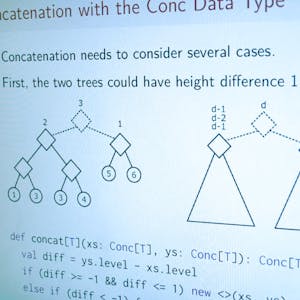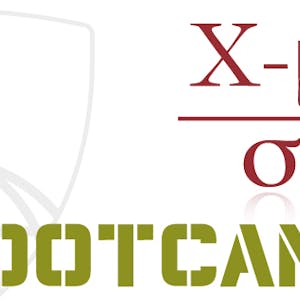Parallel programming
About this Course
With every smartphone and computer now boasting multiple processors, the use of functional ideas to facilitate parallel programming is becoming increasingly widespread. In this course, you\'ll learn the fundamentals of parallel programming, from task parallelism to data parallelism. In particular, you\'ll see how many familiar ideas from functional programming map perfectly to to the data parallel paradigm. We\'ll start the nuts and bolts how to effectively parallelize familiar collections operations, and we\'ll build up to parallel collections, a production-ready data parallel collections library available in the Scala standard library. Throughout, we\'ll apply these concepts through several hands-on examples that analyze real-world data, such as popular algorithms like k-means clustering. Learning Outcomes. By the end of this course you will be able to: - reason about task and data parallel programs, - express common algorithms in a functional style and solve them in parallel, - competently microbenchmark parallel code, - write programs that effectively use parallel collections to achieve performance Recommended background: You should have at least one year programming experience. Proficiency with Java or C# is ideal, but experience with other languages such as C/C++, Python, Javascript or Ruby is also sufficient. You should have some familiarity using the command line. This course is intended to be taken after Functional Program Design in Scala:Created by: École Polytechnique Fédérale de Lausanne

Related Online Courses
This class presents the fundamental probability and statistical concepts used in elementary data analysis. It will be taught at an introductory level for students with junior or senior... more
At the end of this project, you will have all the basic skills to create Instagram content to educate and inform your audience using the Canva platform, an online tool for creating and editing... more
This course utilizes an inquiry based approach to understanding sources of competitive advantages in companies and other organizations.Created by: University of New Mexico more
The \"Security Basics for Artificial Intelligence Software and Services\" course provides an in-depth exploration of security measures and best practices in the context of AI. Spanning two... more
This course continues your study of calculus by focusing on the applications of integration to vector valued functions, or vector fields. These are functions that assign vectors to points in space,... more








